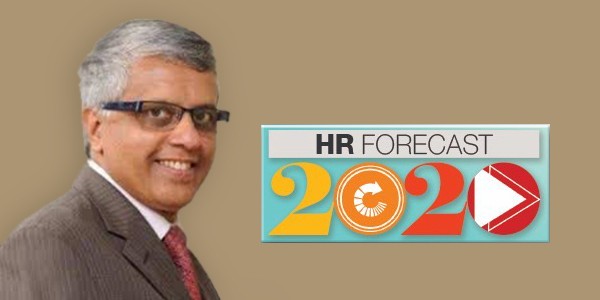Technology, data, employee experience: What’s high on agenda
Technology, as it will continue to disrupt industries across domains. However, digitalisation may make life simpler. Every sector of the economy is getting impacted by digitalisation. This means, the HR fraternity has to anticipate the technologies impacting their industry and strategise how to cope with it.
The other agenda for companies will be skill development. On one hand, employees will experience disruption in their careers and their lives, and they should be ready to adapt to change faster than they can imagine. On the other hand, skills required for the future may not exist in organisations today nor be available in the market. Therefore, the competitive advantage will lie in the ability of organisations to proactively evolve technologies and skills that will keep them ahead of their competitors.
Balancing humanity and technology
It is critical for CHROs to be the bridge between employees and the organisation, as digital disruption will challenge employees’ careers and earning potential. They need to handle this sensitively so as to create win-win situations for employees. While organisations themselves will find it difficult to survive in a disruptive world, employees will find it more stressful to manage their careers and lives. The challenge will be to survive and grow in a changing workplace.
The stress and strain on careers will have a social impact in society, and this will, in turn, have an impact on organisations in managing talent sensitively. Attraction and retention will be a challenge as organisations will continue to look for flexible manpower costs to manage the dynamics of the marketplace. Social institutions, such as family and marriages may get strained and organisations will need to understand the effect it may have on the employee.
Ladder-shaped to pulse-shaped compensation mechanism
Yes, organisations will benefit from compensations linked to business cycles, as they will challenge even the basic survival of companies. Conventional compensation and traditional hierarchies may be a thing of the past, and companies will have to link their compensation design to business models and business cycles.
Companies will also need to link employee value addition to their compensations. A fixed compensation, linked to cost of living for everyone, and rest of the compensation linked to business performance, business cycles and employee value addition to customers, will be the order of the day. Thus, what will emerge is that employees will draw compensation linked to value addition and skills possessed, rather than their level in the organisation. This will be a challenge for HR managers in the future.
Individualism may impact team work and this has to be taken care of, with appropriate reward systems. The social impact of differential compensation will also be visible for organisations to manage.
Internal equality and internal equity
Internal equity will be the norm as digitalisation ensures transparency of data, and hence, managements cannot hide behind smoke screens. This, coupled with corporate governance and reporting, will make it more mandatory than an option for organisations. Socialism was the norm in the past. That means, people with similar levels and designations earned almost the same compensation. But this may be challenged in the future.
Differential compensation will create inequalities within the organisation. So, internal equity has to be linked to value addition rather than designations or organisation levels. The gap between CEO salaries and employees at the lowest level will also be monitored through corporate governance norms. Today, salaries are sometimes disproportionate across levels in the organisation. This may soon become a thing of the past, as transparency to shareholders will ensure that organisations manage compensation across levels, based on equity, fairness and value addition only, and not by other norms.
(This article was published first in HRKatha print magazine)



